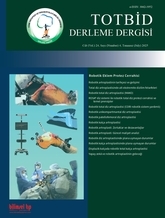
The adoption of robotic technology among arthroplasty surgeons worldwide continues to increase, and the use of robotic- assisted knee arthroplasty (RKA) is expanding. Although RKA is increasingly preferred by surgeons, the potential adverse events and complications in this field are not yet fully understood. Compared to traditional surgical techniques, robotic systems promise more precise and reproducible outcomes; however, they also introduce new types of challenges and surgical pitfalls related to plan deviations. While robotic knee arthroplasty has the potential to enhance surgical accuracy, for this technology to be fully successful, it is essential to identify potential adverse events and take preventive measures against them. Factors such as the experience of the surgical team, calibration of the robotic systems, and patient selection play a critical role in preventing adverse events. The purposes of this review are; to define situations that do not comply with the plan that occurs during RKA and to reveal possible solutions and measures that can be taken.